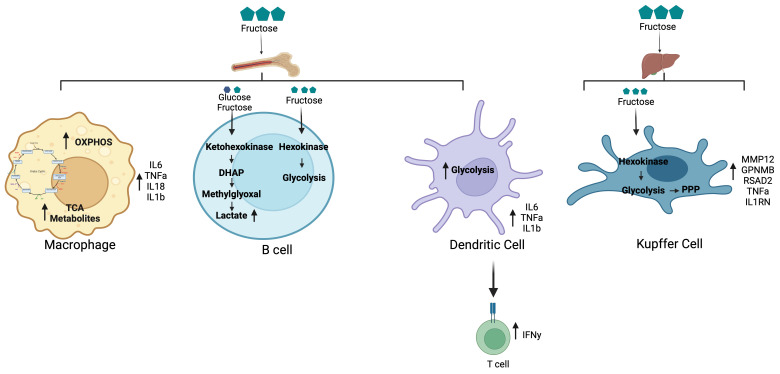Figure 2.
Fructose metabolism and immune cells. Bone marrow-derived immune cells, such as macrophages, B cells, and dendritic cells, display a pro-inflammatory phenotype when exposed to fructose; however, the mechanism for this response is unique for each cell type. Macrophages rely on oxidative phosphorylation and TCA cycle passes for energy and cytokine production. Interestingly, B cells and dendritic cells utilize intermediates of glycolysis conversion to keep up with the energy demands of the cell. Secretion of the cytokines IL-6, TNFα, IL-18, and IL-1β aid in cell-to-cell communication as well as priming an immune response. This signaling can lead to recruitment of immune cells within metabolic tissues such as liver, intestine, and adipose, thus increasing overall inflammation. Cytokine secretion can directly activate T cells through TNFα inducing secretion of IFNγ. Kupffer cells depend on glycolysis and the pentose phosphate pathway for regulation of genes associated with wound healing and anti-inflammatory response such as MMP12, GPNMB, RSAD2, TNFα, and IL1RN.

